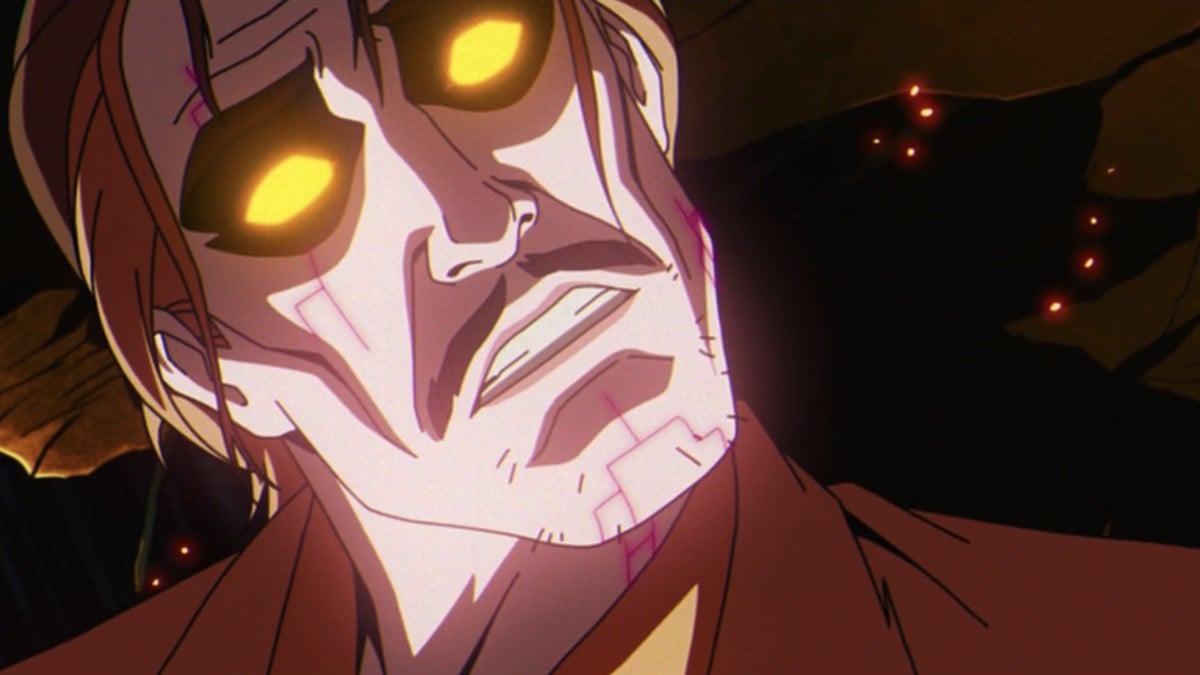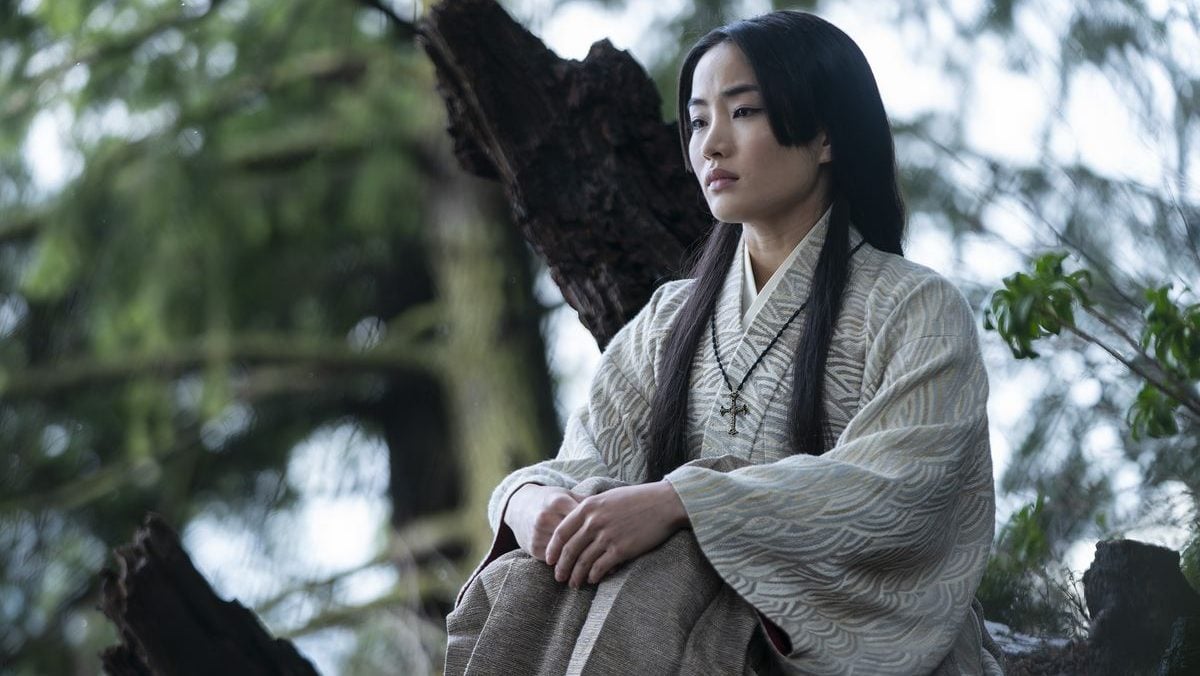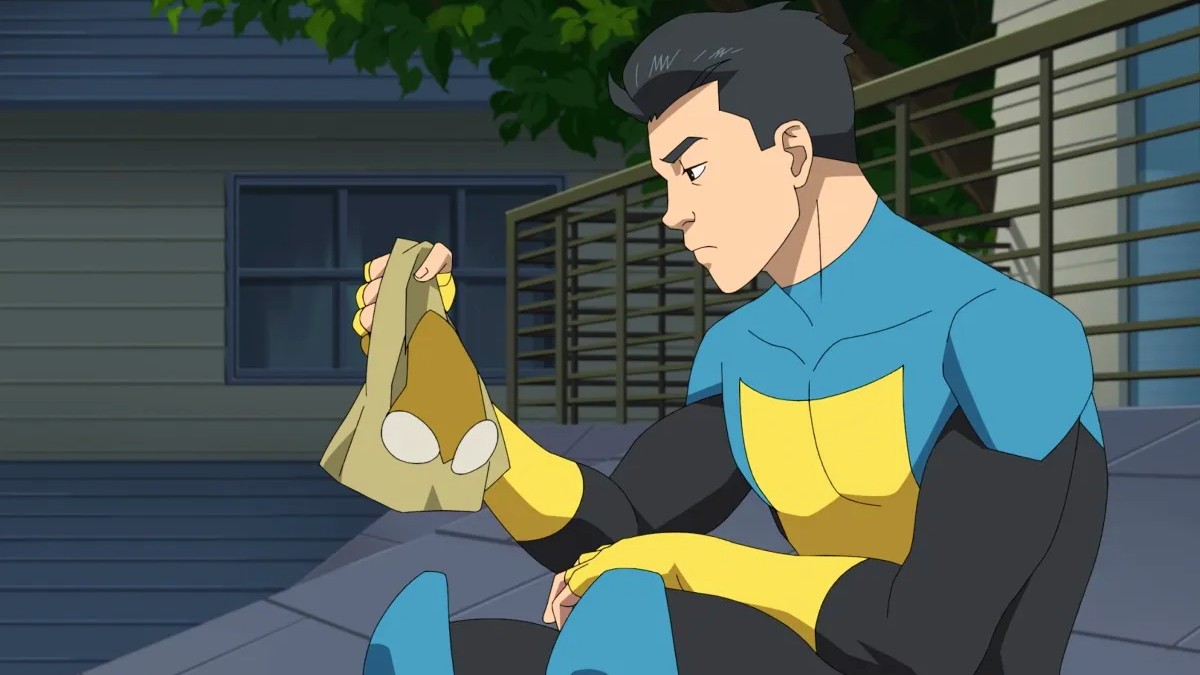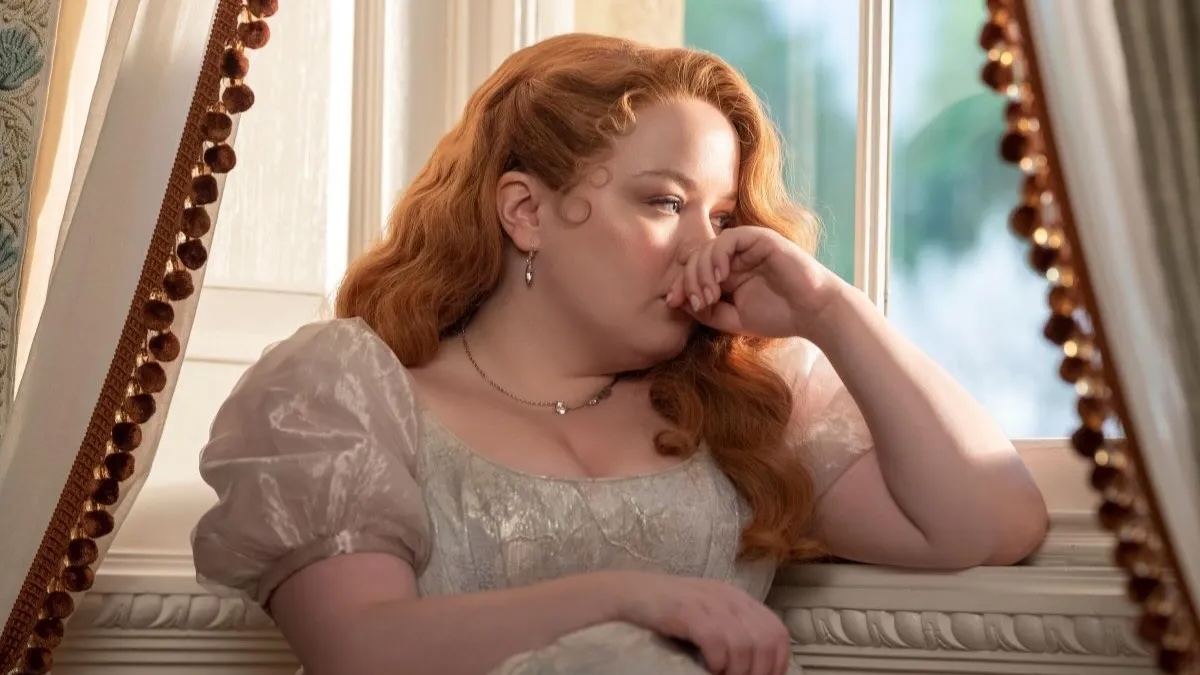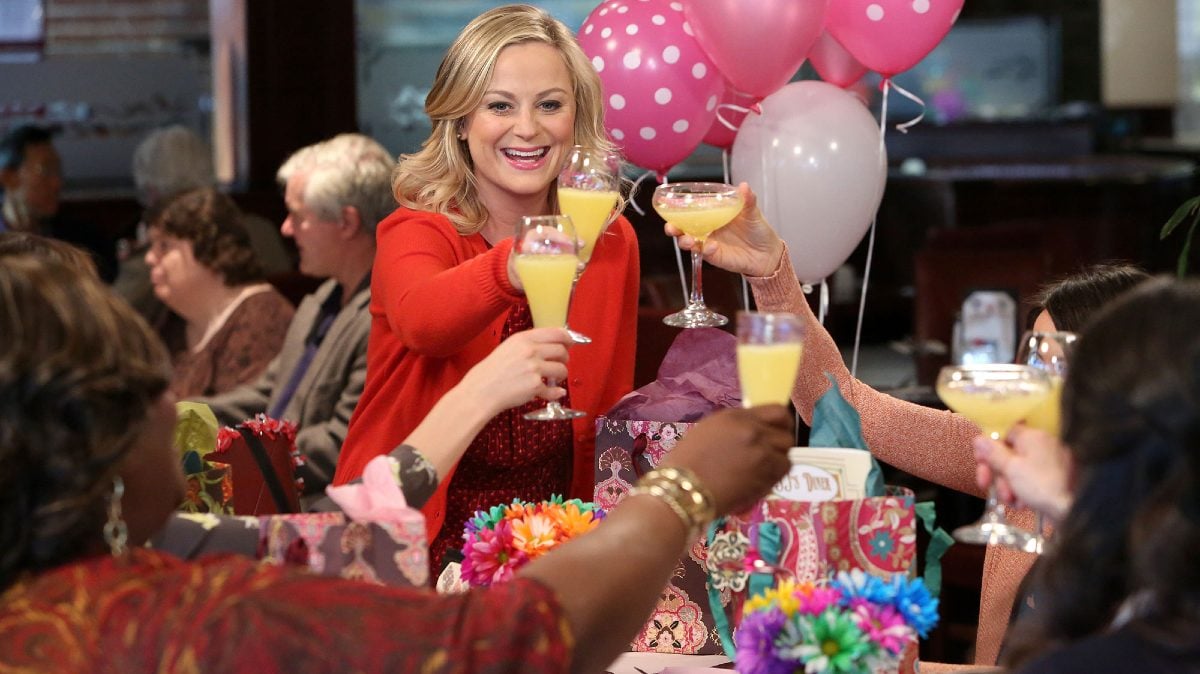People who think they have no power will always be afraid of those who embrace and use that same power. That’s why accusations of witchcraft and using supernatural abilities for evil are nearly as old as humanity. And that’s why it’s so fitting to examine Wanda Maximoff, possibly the most powerful Avenger or person in the Marvel Cinematic Universe, and how she’s now been given the dangerous moniker of “Witch.”
There’s very little in WandaVision or the MCU that resembled actual magical or esoteric practices. As we noted last week, there are certainly parallels and inspiration behind the use of the term “chaos magic,” especially in contrast to the more ceremonial and practiced magic of Dr. Strange. Agatha Harkness uses runes, which many real witches do integrate into their practice, but the runes Agatha uses are not real, nor is the whole flying and throwing fireballs at one another thing. Alas.
But what is accurate is the persecution and the tendency of society to paint any woman who feels too much or has too much power as a dangerous force that must be reckoned with and possibly exterminated. Agatha tells Wanda, correctly, that people will always fear her power. Agatha herself has her origin in the Salem Witch Trials. While I rolled my eyes a bit at yet another sensational version of that very tragic story, which had nothing to do with magic and everything to do with fear and moral panic, it does work here. Because fear is what transforms a witch from a woman with power into a monster.
Wanda’s history in Marvel comics sets her on this exact path. As Marvel.com summarizes of her early days:
Although much of the Scarlet Witch’s true origins remain elusive to her thanks to manipulations by others, she can still recall her early days as a child with her twin brother Pietro. The two lived on Wundagore Mountain in Eastern Europe, believing themselves born as mutants to a Romani couple named the Maximoffs. Given the name Wanda, she lived for a short time in childish innocence until local troubles involving her parents separated her and her brother from them and forced her to hide her growing powers.
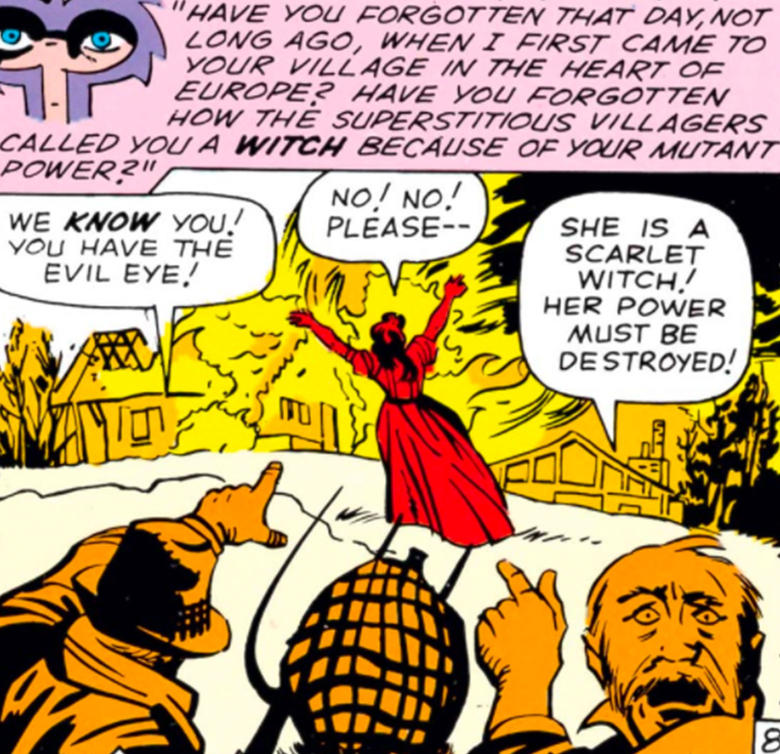
As a practicing witch, I’m keenly aware of what it means to embrace that title. It’s not just a fun conversation starter or an aesthetic. To call yourself a witch is to take your place in a long, often tragic history and say that even despite the burnings and the fear, you are embracing your power to create change and control your life. Women who were too much, too smart, too rich, too strong, too old, too different … they’ve all been called witches. Women are told we feel too much, and this perceived weakness of our sex was said by witch hunters to make us prime prey for the devil.
Wanda is the ultimate expression of all these ideas. In the comics and in the MCU now, her power and uniqueness mean she’s persecuted and hunted (in the movies, all the way back to Civil War) and as a result, her trauma mixed with her power makes her dangerous. But she is also a witch who literally can create her own reality. It certainly comes with karmic consequences for her, but she and Agatha are both seen as threats because of power. Agatha does the wrong thing and kills her mother and coven in pursuit of power, but in the MCU Wanda never really asked or trained for her specific power and was nonetheless alienated and traumatized over and over simply because she could do magic. Wanda is made a victim then made a villain, and has now been told that coming into her newfound Scarlet Witch persona will one day harken the end of the world.
Now that Wanda has embraced her fate as the Scarlet Witch, I wonder if she will be seen as a hero, an antihero, a villain, or a threat going forward in the MCU. I’ve seen more than a few pieces already calling Wanda a monster for what she did to the town of Westview. Her actions there were hurtful and dangerous. But characterizing her as an outright villain because she has power that manifested her deep grief feels like another variation on the old “burn the witch” tune.
It’s fitting that the real “villain” of WandaVision all along wasn’t actually Agatha Harkness, it was grief and more specifically, what happens when we leave people to grieve alone. When we alienate and fear someone and would rather persecute a witch rather than honor her power and emotions, everyone suffers because of that fear.
Witches are never uncomplicated heroes or outright villains. That’s because witches almost by our nature stand at the crossroads of the seen and unseen, the primal and the pedestrian, the emotional and the numinous. Wanda is a fascinating witch because she embodies all the contradictions of the archetype: a woman whose power can heal or hurt, who is used when convenient and feared when she doesn’t play by the rules, and a person who chooses to create change. And change and creation themselves are never inherently good or evil, but they are a kind of magic.
(images: Disney+, Marvel Studios, Marvel Comics)
Want more stories like this? Become a subscriber and support the site!
—The Mary Sue has a strict comment policy that forbids, but is not limited to, personal insults toward anyone, hate speech, and trolling.—




